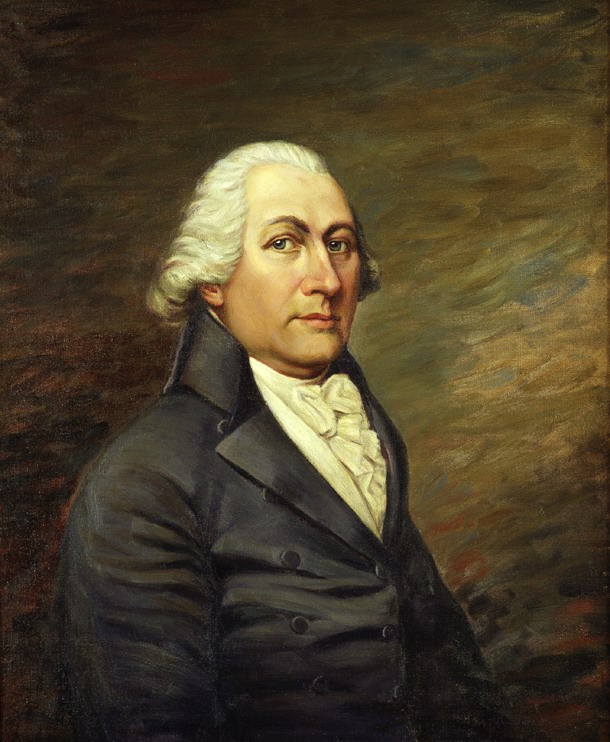- John Langdon
Infobox Officeholder
name =John Langdon
imagesize =200px
small
caption =
order =1st & 3rd
office =President pro tempore of the United States Senate
term_start =April 6 ,1789
term_end =August 9 ,1789 November 5 ,1792 –December 2 ,1793
president =George Washington
predecessor =None; firstRichard Henry Lee (1792)
successor =Richard Henry Lee Ralph Izard
order2 =United States Senator
fromNew Hampshire
term_start2 =April 6 ,1789
term_end2 =March 4 ,1801
predecessor2 =None; first
successor2 =James Sheafe
order3 =2th, 4th, 8th & 10thGovernor of New Hampshire
term_start3 =June 1 ,1785
term_end3 =June 7 ,1786 June 4 ,1788 –January 22 ,1789 June 6 ,1805 –June 8 ,1809
1810 –June 5 ,1812
predecessor3 =Meshech Weare John Sullivan
John T. GilmanJeremiah Smith
successor3 =John Sullivan (twice)Jeremiah Smith William Plumer
birth_date =June 26 ,1741
birth_place =Portsmouth, New Hampshire
death_date =September 18 ,1819
death_place =Portsmouth, New Hampshire
nationality =
party =Pro-Administration
Anti-Administration
Democratic-Republican
spouse =
relations =
children =
residence =
alma_mater =
occupation =
profession =
net worth =
cabinet =
committees =
portfolio =
religion =
website =
footnotes =John Langdon (
June 26 ,1741 —September 18 ,1819 ) was a politician fromNew Hampshire and one of the first twoUnited States Senator s from that state. Langdon was an early supporter of theAmerican Revolutionary War and later served in theContinental Congress . After being in Congress for 12 years, including serving as the first President pro tempore of the Senate, Langdon becameGovernor of New Hampshire . He turned down a nomination for Vice Presidential candidate in 1812, and later retired until his death in 1819. Today, Langdon is considered the most important New Hampshire politician in early American history. whoLangdon was born in Portsmouth,
New Hampshire . His father was a prosperous farmer and local politician, whose family had emigrated to America before 1660 and was among the first to settle near the mouth ofPiscataqua River , a settlement which became Portsmouth, one ofNew England 's majorseaport s. Langdon attended the local grammar school, run by a veteran of the 1745siege against the French atFortress Louisbourg inCanada . After finishing his primary education, Langdon served anapprentice ship as a clerk. He and his older brother, Woodbury, rejected the opportunity to join in their father's successful agricultural pursuits, and went to sea instead, apprenticed themselves to local naval merchants.By age 22, Langdon was
captain of a cargo ship called the "Andromache" sailing to theWest Indies . Four years later he owned his first merchantman, and would continue over time to acquire a small fleet of vessels, engaged in thetriangular trade between Portsmouth, the Caribbean, andLondon . His older brother was even more successful in international trade, and by 1770 both young men were among Portsmouth's wealthiest citizens.British control of the shipping industries greatly hurt Langdon's business, motivating him to become a vigorous and prominent supporter of the revolutionary movement in the 1770s. He served on the New Hampshire
committee of correspondence and a nonimportation committee, and also attended various patriot assemblies. In 1774, he participated in the seizure and confiscation of British munitions fromFort William and Mary .Langdon served as a member of the First Continental Congress from 1775 to 1776. He resigned in June 1776 to become agent for the Continental forces against the British and superintended the construction of several warships including the Raleigh, the America, and the Ranger which was captained by
John Paul Jones . In 1777, he equipped an expedition against the British, participating in theBattle of Bennington and commandingLangdon's Company of Light Horse Volunteers at Saratoga and in Rhode Island.Langdon was again a member of the Continental Congress in 1787 and became a delegate to the Constitutional Convention in 1787, serving as a member of the New Hampshire delegation. Langdon was elected to the U.S. Senate and served from
March 4 ,1789 , toMarch 3 ,1801 . He was elected the first President pro tempore of the Senate onApril 6 ,1789 , and also served as President pro tempore during the Second Congress.Langdon later served as a member of the New Hampshire legislature (1801-05), with the last two terms as Speaker; he served as Governor of New Hampshire from 1805-11, with the exception of 1809. Langdon declined the nomination to be a candidate for Vice President in 1812, and later retired. He died in his hometown of Portsmouth in 1819, and was interred at the Langdon Tomb in the .
The town of
Langdon, New Hampshire is named after John Langdon, as well as Langdon Street inMadison, Wisconsin , a town with several streets named after founding fathers. [http://www.wisconsinhistory.org/odd/archives/002071.asp]ources
*CongBio|L000067
*"The Founding Fathers: New Hampshire." U.S. National Archives and Records Administration. [http://www.lib.virginia.edu/speccol/exhibits/mellon/acquiring.html]
*"John Langdon." "Soldier-Statesmen of the Constitution". U.S. Army Center of Military History. [http://www.army.mil/cmh-pg/books/RevWar/ss/langdon.htm]
* [http://books.google.com/books?id=XSDnxlK1sMUC&printsec=titlepage&source=gbs_summary_r State Builders: An Illustrated Historical and Biographical Record of the State of New Hampshire. State Builers Publishing Manchester, NH 1903]succession box
title=President pro tempore of the United States Senate
before=none
years=April 6 ,1789 –August 9 ,1789
after=Richard Henry Lee succession box
title=President pro tempore of the United States Senate
before=Richard Henry Lee
years=November 5 ,1792 –December 2 ,1793
after=Ralph Izard
###@@@KEYEND@@@###
Wikimedia Foundation. 2010.
